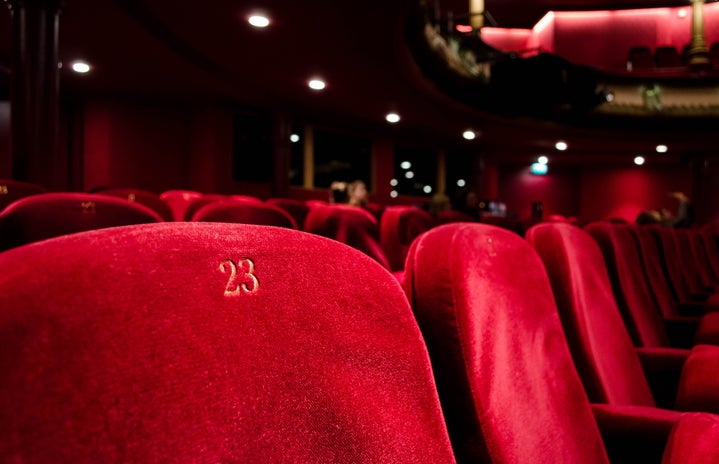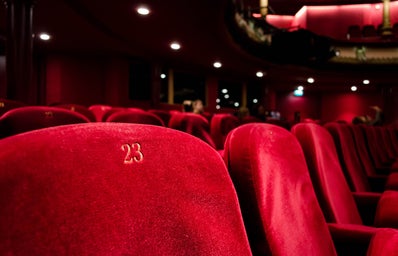Trigger Warning: This article talks about sensitive subjects such as domestic abuse and assault
Not only are the book girls banding together but fans in general have come to a simple conclusion that “It Ends With Us” simply missed the mark. Many viewers enjoyed the movie but agreed it didn’t fulfil its initial aim.
“Also if anybody has had that real life experience, I can imagine how hard it would be to imagine their experience in a romance novel.”
Justin Baldoni, AP Entertainment
The genre of “It Ends With Us” is a romance book, but in its simplest form it is more than that: and many felt that the movie should’ve been as well. The movie also claims to be ‘romance’ when all the issues within the film are not related to romantic acts. Many have claimed that the movie glamorizes domestic violence. Many have taken to TikTok to express their concerns about the movie and its designs, saying that for many younger viewers, this movie makes Ryle’s abuse towards Lily, almost forgivable.
Now this movie, not directly stated, is meant for an older audience. But that didn’t stop young Colleen Hoover fans, and moviegoers in general, from seeing the film. Many of the topics in the adaptation can be very graphic and mentally challenging, which creates a lot of discomfort for older viewers when looking at the audience for the movie. Within the book, Colleen can show Ryle as a true gas lighter, even by manipulating the reader through Lily’s mind- to wonder if Ryle is really bad, or misunderstood. For younger minds this manipulation might not be so obvious, making it harder to decipher Ryle’s true identity.
With all the criticism the movie has faced, there is still an overwhelming amount of people who disapprove of the film and its glamorization of domestic violence. It seemed as though the original stated purpose was to help bring awareness to domestic abuse and its survivors, but after production got ahold of the script, the direction changed. Making the film a romantic drama that would get hits at the box office. When responding to the claims that the movie glorifies domestic violence, Justin Baldoni, the actor who played Ryle in the movie, told AP Entertainment, “They are absolutely entitled to that opinion. And it makes perfect sense as to why they would feel that way. I mean look, we live in a culture where unfortunately, too many things are glorified. And you know, we are fighting for attention. We’re an attention economy and we’re in a clickbait world and everybody is trying to, you know, figure out how to gather attention. Look at the news cycle. It’s everywhere around us. And so it makes perfect sense that people would feel that way. Also if anybody has had that real life experience, I can imagine how hard it would be to imagine their experience in a romance novel. To them I would just offer that we were very intentional making this film.” I think Baldoni makes a great point noting that we are in an attention economy, but this wasn’t the film to create ‘clickbaitable’ content. This was a book about serious issues that need serious attention. “It Ends With Us” the film adaptation helps bring awareness to serious situations but blurs the lines between a movie drama and real-life issues – making it hard for many fans to watch and support the final product.
“So the intention for optioning it was to make a film that could truly impact and make a difference in the lives of women.”
Justin Baldoni, AP Entertainment
A substantial difference between the book and the movie was that after every incident in the book Lily confronts Ryle, and even threatens to leave after each abusive experience. In the film adaptation, Lily is in denial after each ‘accident’ and doesn’t come to an understanding and realization until the very end. Some fans support this film’s direction saying that this makes the movie very strategic, laying heavy on the fact that Ryle is a good manipulator. Some fans have even noted that every scene containing abuse is a little blurred as if we were viewing it from Lily’s perspective; thus promoting the viewer to understand why Lily wonders if the abuse was real or not.
Some viewers saw this not as an intentional production choice, but as a disappointing attempt to show Ryle as the manipulator. Many viewers wondered why Lily didn’t confront Ryle as she did in the book. Fans believed that waiting till the end of the movie paints Lily as a fragile woman who couldn’t walk away, knowing damn well she needed to. This is not Lily’s character; Lily is supposed to be strong, level-headed, and independent- we see these characteristics when she’s a teenager. The movie makes Lily seem dependent on Ryle, which doesn’t always equate to manipulation but rather insecurity—leaving many viewers to wonder why she continued to brush off Ryle’s abusive acts and continue to come back to him.
We see this especially challenging at the end of the movie when Lily is in labor and lets Ryle watch and even help in the process. For many women this is a very intimate moment, one shared with special people, because of this it is hard to understand why Lily would invite her abuser into her delivery room. The scene paints Ryle in a very good light, he shows up for the birth, comforts her, and even stays after to hold the baby. Watching this counteracts every woman’s inner monologue telling Lily to run and not let him back in. This seems is where this scene is going- eventually Lily tells Ryle she wants a divorce. If the effect was to create a more dramatic surprise for the adaptation, then well done, it was, but the film itself is already intense enough. I think this is why many fans were opposed to the adaptation. The book was already intense on its own, so there was no need to add extra “movie magic.” It would have been powerful without the added scenes for dramatic effect.


